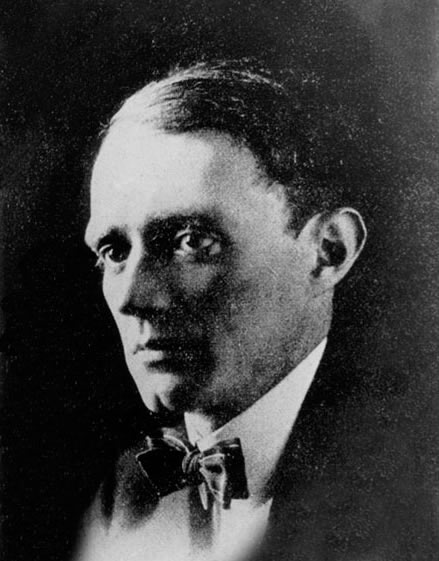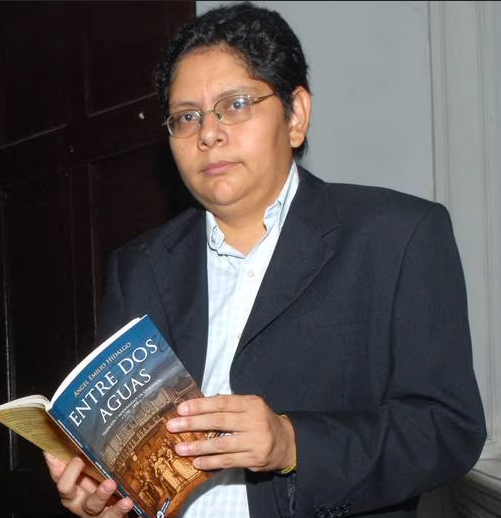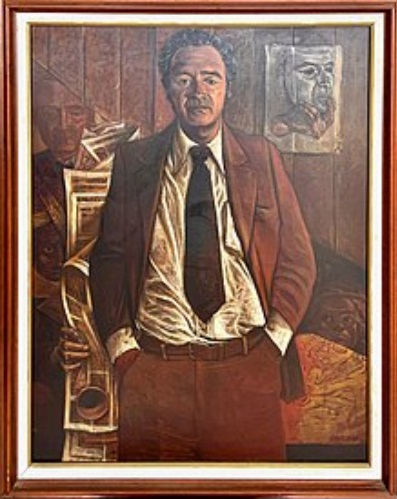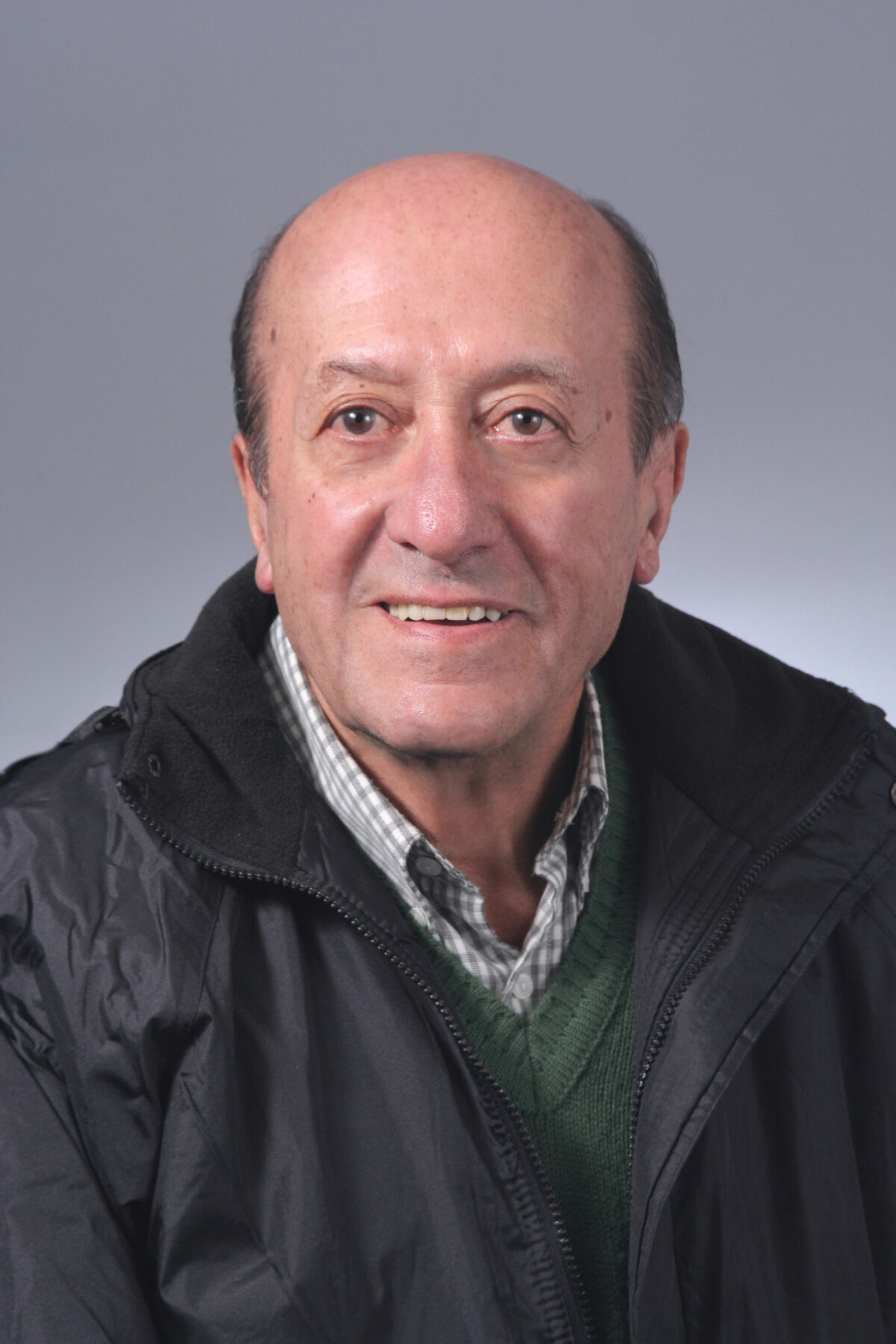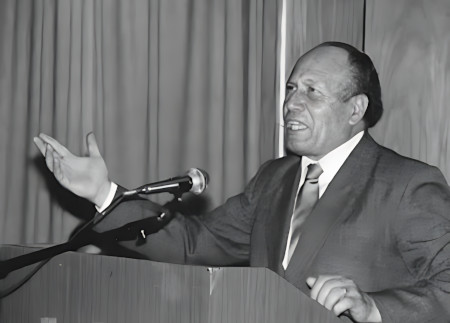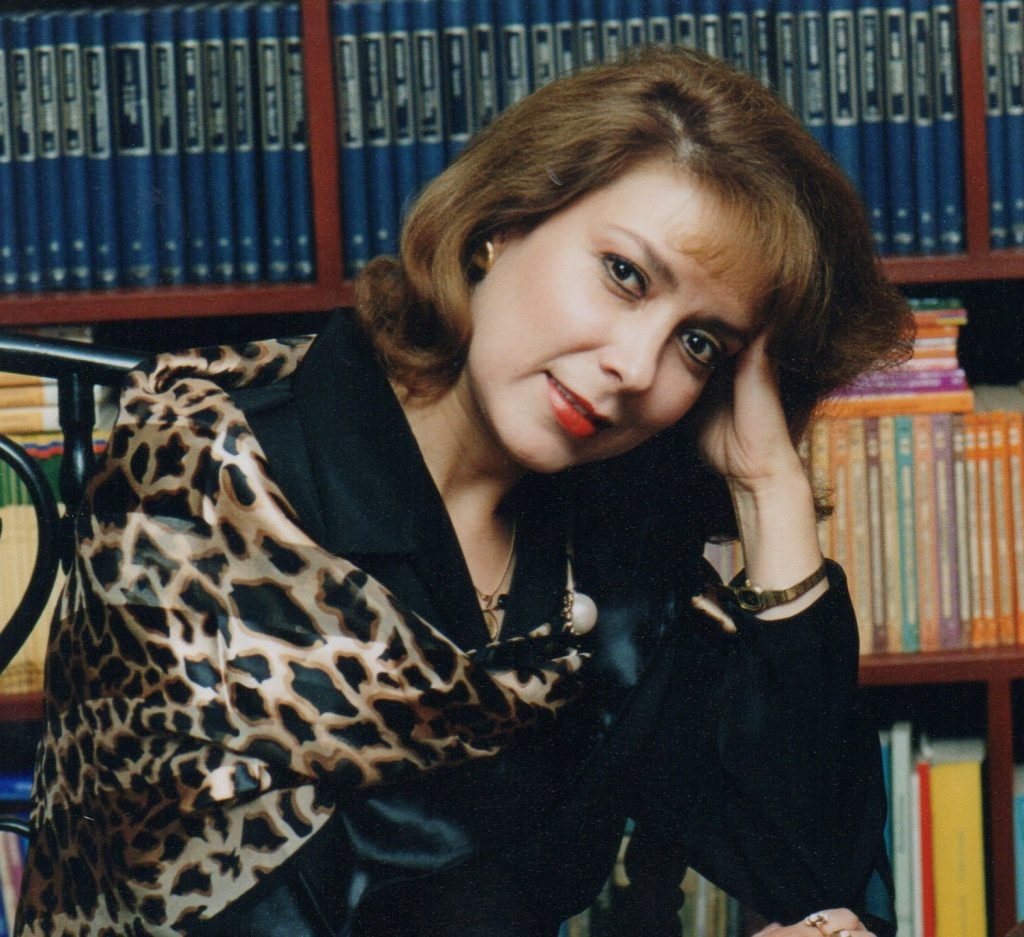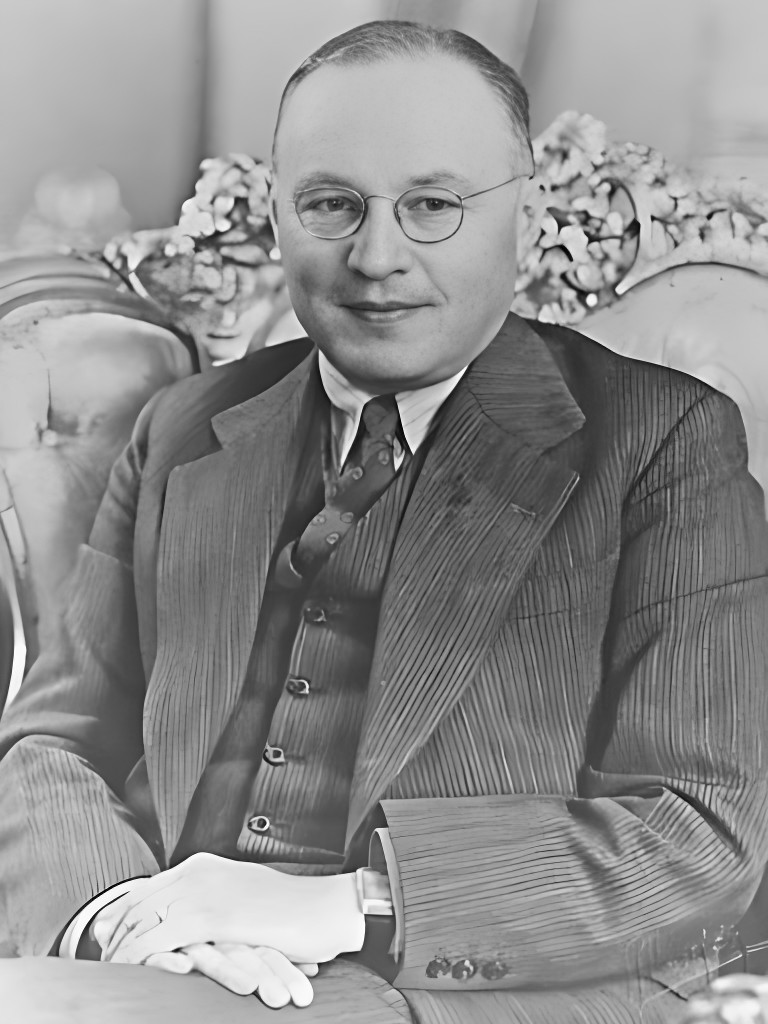Remigio Romero y Cordero (Cuenca, June 13, 1895 – Quito, 1967) was an Ecuadorian poet, lawyer, professor, parliamentarian and journalist. He was the son of the poets Remigio Romero León and Aurelia Cordero Dávila. After graduating from high school at Benigno Malo National School, he enrolled in the Faculty of Jurisprudence at the University of Cuenca, where he went on to earn the degrees of Doctor of Jurisprudence and Lawyer of Ecuador’s Courts of Justice. He grew up and received his initial education under the protection of the political and social reforms brought about by the Liberal Revolution. He earned significant acclaim due to his brilliant poetry, which gained him the honor of being crowned poet at the Quito Poetry Festival in 1933.
Continue reading “Remigio Romero y Cordero”Posts
Ángel Emilio Hidalgo
Ángel Emilio Hidalgo Ortiz (Guayaquil, 1973) is an Ecuadorian historian, a poet, a professor at Guayaquil’s University of the Arts (UArtes) since 2014, and the director of the Guayaquil Municipal Library since 2021. His poetry collections include “Beberás de estas aguas” (1997, First Prize in the Ismael Pérez Pazmiño National Poetry Contest), “El trazado del tiempo” (2003, honorable mention in the National Literature Contest of the Guayaquil Municipality), “Fulgor de la derrota” (2010), and “Acapulco so close” (2021). Hidalgo’s poems have been published in various Ecuadorian and Latin American anthologies. such as “Porque nuestro es el exilio” (2006), which features the poetry of three Ecuadorian authors, Ángel Emilio Hidalgo, Luis Carlos Mussó and Ernesto Carrión, as well as Fabián Darío Mosquera, a Colombian poet living in Guayaquil. In addition, he is the co-author of more than 20 books of historical and cultural essays and is a member of Ecuador’s National Academy of History.
Continue reading “Ángel Emilio Hidalgo”Carlos Villasís Endara
Carlos Alfonso Villasís Endara (Bahía de Caráquez, November 17, 1930 – Quito, January 27, 2023) was an Ecuadorian writer, poet, playwright, and renowned art critic. He was the founder of the literary group “Galaxia,” member of the “Caminos” group, vice president of the Cotopaxi chapter of the House of Ecuadorian Culture, member of the Legal-Literary Society, and an honorary member of the Association of Plastic Artists of Ecuador. He was known by his family and friends as “Carlucho.”
Continue reading “Carlos Villasís Endara”Teodoro Vanegas Andrade
Teodoro Vanegas Andrade (Cuenca, December 21, 1926 – 2002) was an Ecuadorian novelist, journalist, editor, and poet who was a member of the Elan Group. He authored 4 poetry books, “Estación del abismo,” “Ubicación del hombre,” “Señales de la Erranza” and “El libro de los avatares” which was published posthumously. Some of his poems have been translated into Russian, Italian, French and English. He was a columnist for El Expreso newspaper, and was the editor of the literary magazines Antorcha and Paz. In 1971, his novel “La noche estevada” received first mention at the novel contest held by the journal El Universo. He was a member of the House of Ecuadorian Culture.
Continue reading “Teodoro Vanegas Andrade”Francisca Ortega Salazar
Francisca Ortega Salazar (1933 – Unknown) was an Ecuadorian poet and children’s literature author. In 1984, she won the Ismael Pérez Pazmiño National Poetry Contest for her poem “Salinas.” Her poetry books include “Poemas para Orfeo” (1978) and “Puente” (1957). She also wrote “Lucecita” (1979), a children’s book.
Continue reading “Francisca Ortega Salazar”Othón Muñoz Alvear
Othón Muñoz Alvear (Guayaquil, Jan 14, 1945 – August 9,2014) was an Ecuadorian poet, columnist, writer, anthologist, theater actor, teacher, and politician. He’s considered the greatest of the “Hurricane Generation,” a group of poets in the 1970s who all contributed to a book of the same name. He authored poetry books and won several prizes and national literary contests. His poem, “Breves noticias de sus vidas breves,” won first prize at the Ismael Pérez Pazmiño National Poetry Contest held by the newspaper El Universo in 1978. He presided over the Guayaquil Municipal Cultural Center and the Association of Educational Journalists. He is perhaps best known for his poems “Mamacity” and “Y te vuelvo a fundar en la esquina de mi barrio,” which pay homage to his native city of Guayaquil.
Continue reading “Othón Muñoz Alvear”Claudio Mena Villamar
Claudio Mena Villamar (Quito, May 28, 1928) is a poet, essayist, journalist, lawyer, and professor. In 1976, he won first prize in the Ismael Pérez Pazmiño poetry contest of the newspaper El Universo for “Las líneas de tus manos” [The Lines of Your Hands]. On February 8, 2007, as he was inducted into the Ecuadorian Academy of Language, he delivered a discourse on the concept of time entitled “Por los túneles del tiempo” [Through the Tunnels of Time], which was released as a book by Editorial El Conejo in Quito, Ecuador, in 2009, and awarded by the Central University of Ecuador. After being appointed pro-secretary of the Academy following the retirement of Filoteo Samaniego in 2006, he was appointed Secretary in 2008 and served until 2013. He is also a member of the Literary Law Society, the House of Ecuadorian Culture’s Academic Section of Literature, the National Academy of History and a founding member of the Ecuadorian Society of Writers “Grupo America.” He was an editorial writer for the newspapers El Tiempo and Hoy, and a columnist for several other publications.
Continue reading “Claudio Mena Villamar”Nicanor de J. Alejandro Reyes
Nicanor de Jesus Alejandro Reyes (Santa Elena, December 24, 1928) is an Ecuadorian poet. In 1967, he took First Prize in the Ismael Pérez Pazmiño Poetry Contest (for “Divagaciones”). In 2005, he published a collection of 33 poems entitled, “Anclas de la ternura,” among which “La guayaquileña bonita” [The Beautiful Guayaquilean Woman] is perhaps his best known poem. He has been a part of the House of Ecuadorian Culture of Guayas.
Continue reading “Nicanor de J. Alejandro Reyes”Ignacio Carvallo Castillo
Ignacio Carvallo Castillo (Guayaquil, January 6, 1937 – Guayaquil, August 28, 2015) was an Ecuadorian writer, poet, and journalist, prominent in the literary generation of the 1960s. A graduate of the University of Guayaquil and the University of Bonn, where he specialized in Pedagogy and History, Carvallo was known for his evocative poetry and literary criticism. He published widely in Ecuador and internationally, and his work earned him numerous accolades, including the Nicolás Copérnico Medal and several national poetry awards. In addition to his literary career, he was a respected educator and cultural advocate, teaching at universities and serving on cultural heritage commissions.
Continue reading “Ignacio Carvallo Castillo”María Antonieta Humeres
María Antonieta Humeres de Doring (Chile) was a Chilean poet known for her deeply introspective and lyrical work. She gained significant recognition in Ecuador after winning the prestigious Ismael Pérez Pazmiño Prize in 1964 for her poetry collection Población de atardeceres (Population of Sunsets). Her poetry, often centered on themes of existential reflection, time, and the feminine experience, was featured in the anthology Poesía ecuatoriana del siglo XX. Although she was Chilean by birth, her literary success in Ecuador led to her frequent association with the Ecuadorian poetry.
Continue reading “María Antonieta Humeres”Waldo Calle Calle
Waldo Calle Calle (Cojitambo, August 25, 1951) is an Ecuadorian poet, essayist, and diabetologist. He has lived in Cuenca for many years where he practices medicine and has worked as a professor at the University of Cuenca. In 1977 he was awarded First Prize in the Ismael Pérez Pazmiño National Poetry Contest for his poem Juantodonada. His poetry books include: “Los días del antihombre” [The Days of the Anti-Man] (1978) and “Antologia de los perros” [Anthology of the Dogs] (2003). His poems and stories have also been included in several locally published anthologies in Cuenca.
Continue reading “Waldo Calle Calle”Manuel Zabala Ruiz
Manuel Zabala Ruiz (Riobamba, 1928) is an Ecuadorian poet and university professor. He was a member of the “Caminos” group. He won several Ecuadorian national prizes, including First Prize of the Ismael Pérez Pazmiño Poetry Contest for Los cuadernos del salmista. His published poetry books include: La risa encadenada (1964), Teoría de lo simple (1970), Rumbo al otoño (1986), Obra poética completa (1998) and Poesía junta (2006).
Continue reading “Manuel Zabala Ruiz”Jacqueline Costales
Jacqueline Costales de Torres, born Lourdes Jacqueline Costales Terán (Riobamba, 1964) is an Ecuadorian poet, writer, columnist, and former university professor. She has published 5 poetry books, a book of short stories, and a nonfiction book. She has also written for the regional magazine Panorama and the Riobamba newspaper La Prensa as a columnist. She is a member of the House of Ecuadorian Culture of Chimborazo, the “Grupo América” Cultural Corporation, and the Association of Contemporary Writers of Ecuador, where she serves as vice president. The National Assembly of Ecuador honored Jacqueline Costales for her contributions to Ecuadorian culture and education by bestowing upon her the “Doctora Matilde Hidalgo de Prócel” Award in 2020. She’s the founder and director of the Casa Cultural Somos Arte Foundation, a non-profit organization with the mission of making art accessible to people of all social classes.
Continue reading “Jacqueline Costales”Yuliana Ortiz Ruano
Yuliana Ortiz Ruano (Limones, Esmeraldas, 1992) is an Ecuadorian poet and writer. She has had several of her poems published in both printed and digital magazines. Among her published poetry books are “Sovoz” (2016), “Canciones desde el fin del mundo” (2018), and “Cuaderno del imposible retorno a Pangea” (2021). In 2017, Yuliana received an honorable mention at the international poetry festival “Poetry in Parallel Zero.” She was also awarded the National Literature Award in 2021 in the poetry category for her remarkable contributions to the field. Currently, she serves as an editor and anthologist for the online poetry magazine Cráneo de Pangea. Yuliana’s debut novel, “Fiebre de carnaval” (Carnival Fever), was published in 2022 and received critical acclaim. In 2023, she won the prestigious IESS First Novel Prize in Italy, which recognizes the best first novel by a Latin American author under the age of 35. As part of this award, her book will be translated into Italian. Her novel was also recognized as one of the recommended books of 2022 by the Spanish edition of Vanity Fair magazine and received high praise from author Mónica Ojeda, who named it her favorite novel of the year. Currently, Yuliana Ortiz Ruano resides in Guayaquil, Ecuador.
Continue reading “Yuliana Ortiz Ruano”Julio Tobar Donoso
Julio Tobar Donoso (Quito, January 25, 1894 – Ibidem, March 10, 1981) was an Ecuadorian diplomat, lawyer, writer, and social and political scientist. In 1942, during the presidential term of Carlos Arroyo del Río (1940-1944), Julio Tobar was a signatory of the Protocol of Rio de Janeiro, a treaty settling possession of the disputed Oriente region on the border of Peru and Ecuador. He also served as Minister of Foreign Affairs of Ecuador from 1938-1942. Along with Father Aurelio Espinosa Pólit, Tobar founded the Pontifical Catholic University of Ecuador. He was a member of the Ecuadorian Academy of Language.
Continue reading “Julio Tobar Donoso”